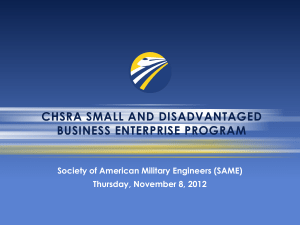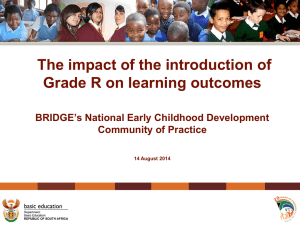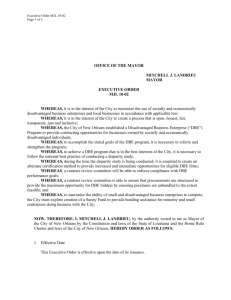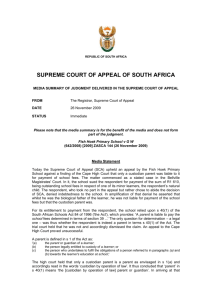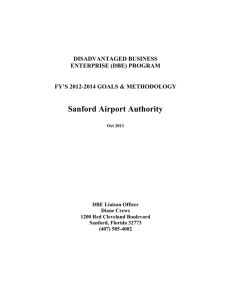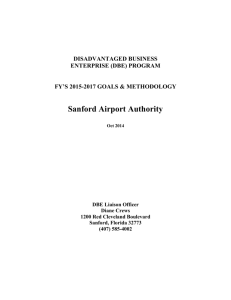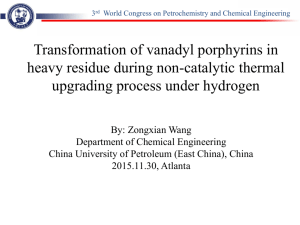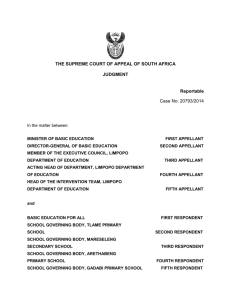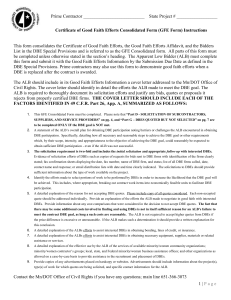Media Summary
advertisement
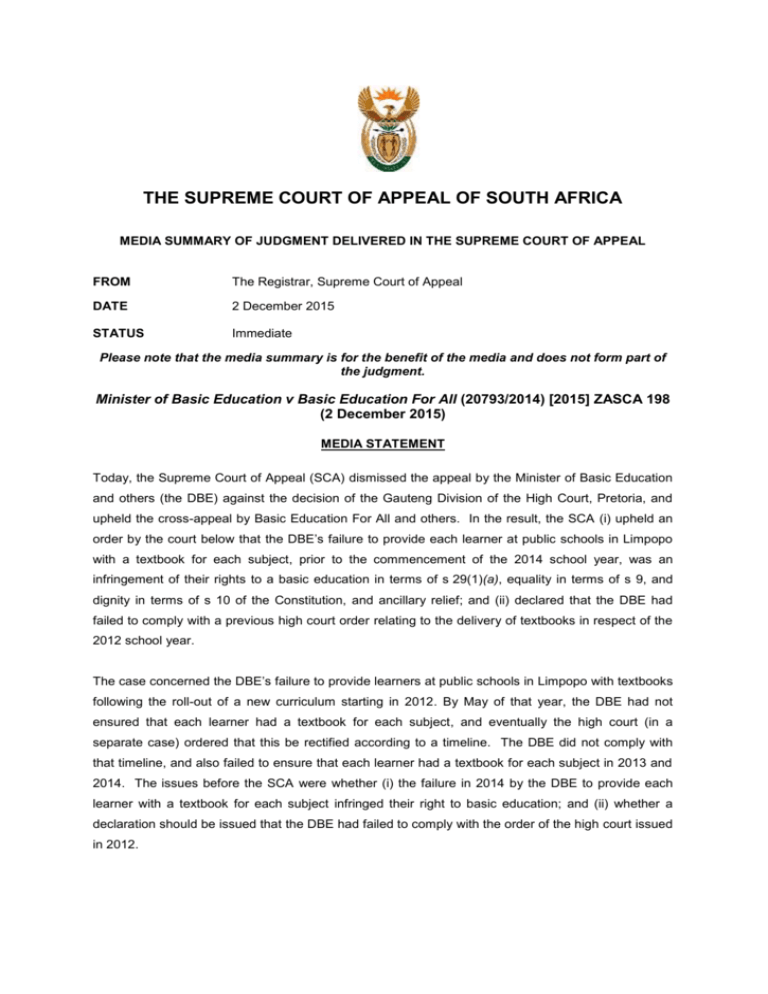
THE SUPREME COURT OF APPEAL OF SOUTH AFRICA MEDIA SUMMARY OF JUDGMENT DELIVERED IN THE SUPREME COURT OF APPEAL FROM The Registrar, Supreme Court of Appeal DATE 2 December 2015 STATUS Immediate Please note that the media summary is for the benefit of the media and does not form part of the judgment. Minister of Basic Education v Basic Education For All (20793/2014) [2015] ZASCA 198 (2 December 2015) MEDIA STATEMENT Today, the Supreme Court of Appeal (SCA) dismissed the appeal by the Minister of Basic Education and others (the DBE) against the decision of the Gauteng Division of the High Court, Pretoria, and upheld the cross-appeal by Basic Education For All and others. In the result, the SCA (i) upheld an order by the court below that the DBE’s failure to provide each learner at public schools in Limpopo with a textbook for each subject, prior to the commencement of the 2014 school year, was an infringement of their rights to a basic education in terms of s 29(1)(a), equality in terms of s 9, and dignity in terms of s 10 of the Constitution, and ancillary relief; and (ii) declared that the DBE had failed to comply with a previous high court order relating to the delivery of textbooks in respect of the 2012 school year. The case concerned the DBE’s failure to provide learners at public schools in Limpopo with textbooks following the roll-out of a new curriculum starting in 2012. By May of that year, the DBE had not ensured that each learner had a textbook for each subject, and eventually the high court (in a separate case) ordered that this be rectified according to a timeline. The DBE did not comply with that timeline, and also failed to ensure that each learner had a textbook for each subject in 2013 and 2014. The issues before the SCA were whether (i) the failure in 2014 by the DBE to provide each learner with a textbook for each subject infringed their right to basic education; and (ii) whether a declaration should be issued that the DBE had failed to comply with the order of the high court issued in 2012. 2 The SCA stated that it ‘cannot be emphasised enough that basic education should be seen as a primary driver of transformation in South Africa’, and affirmed the following: ‘We must guard against failing those who are most vulnerable. In this case we are dealing with the rural poor and with children. They are deserving of Constitutional protection.’ The SCA acknowledged that the Constitution does not define the content of the right to a basic education. However, where the DBE itself had recognised the centrality of textbooks in the realisation of the right, and had adopted a clear policy that each learner must be provided with a textbook for each subject, the SCA held that this did not merely constitute a ‘lofty’ ideal which the DBE should not be strictly held to. Instead, the DBE (acting as the State in this instance) had given content to the right, which was immediately realisable in terms of s 29(1)(a). The SCA held further that the judiciary was not intruding into the domain of the other two arms of government, as the court was merely holding the DBE to the standard that it (ie the State) had set for itself, and which it had failed to meet due to poor planning and implementation. The SCA found as follows: ‘The truth is that the DBE’s management plan was inadequate and its logistical ability woeful. One would have expected proper planning before the implementation of the new curriculum. This does not appear to have occurred. The DBE also had a three-year implementation period during which it could have conducted proper budgetary planning, perfected its database, and ensured accuracy in procurement and efficiency in delivery. It achieved exactly the opposite and blamed all and sundry.’ The SCA also noted that this same standard was applicable throughout the country, and had been complied with in every province except Limpopo. The court held that the DBE’s conduct thus amounted to unfair discrimination against the affected learners, stating the following: ‘Clearly, learners who do not have textbooks are adversely affected. Why should they suffer the indignity of having to borrow from neighbouring schools or copy from a blackboard which cannot, in any event, be used to write the totality of the content of the relevant part of the textbook? Why should poverty stricken schools and learners have to be put to the expense of having to photocopy from the books of other schools? Why should some children be able to work from textbooks at home and others not? There can be no doubt that those without textbooks are being unlawfully discriminated against.’ Accordingly, the SCA upheld the court below’s order that the DBE had infringed the affected learners’ rights to a basic education, equality and dignity. However, it noted that parts of that order had been overtaken by time, and it was thus necessary to re-craft it to deal with the DBE’s obligations in respect of future years, including the 2015 school year. --- ends --- 2
